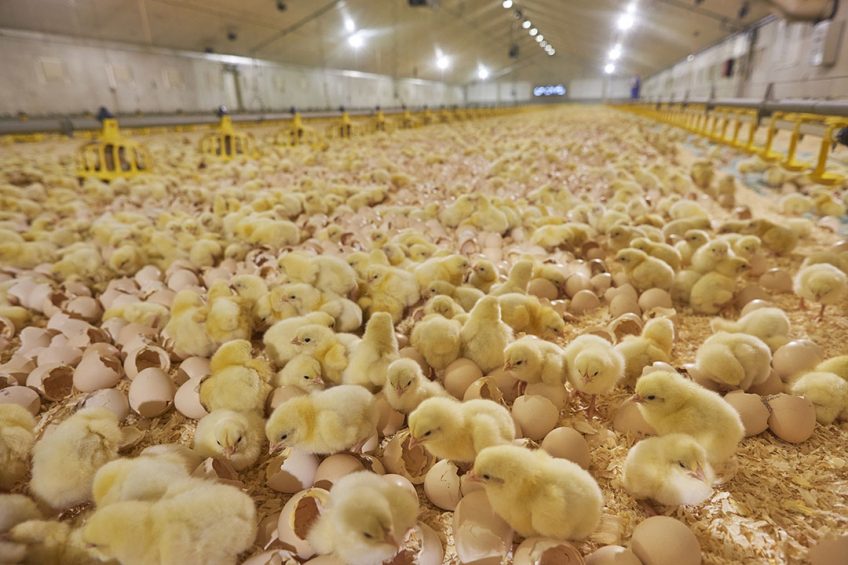The future of bird welfare

According to a leading animal welfare behaviour specialist, greater use of on-farm hatcheries will reduce the stress of young chicks, which has an adverse effect on growth and mortality rates.
Transporting day-old chicks even across a small distance can cause stress, argues Professor Lucy Asher, senior lecturer in poultry behaviour at the School of Natural and Environmental Science, Newcastle University. Prof Asher has been looking a distress calls for commercial monitoring of broiler chick welfare and found that chickens make 30 different calls. While chicks make fewer noises, distress calls are an indicator of something negative. Consistent distress calls have lasting effects on growth and the ability to cope with stress. Chicks tend to make such calls when they are isolated from other birds, when they are too cold or hot, or fearful for specific reasons.
Stress could be contagious
Prof Asher told a National Farmers’ Union poultry research seminar that if other birds heard these types of calls made in the early days of life (3-7 days), such stress could be contagious and be passed on to other birds, which leads to pessimism later in life. Trials have been taking place on 12 commercial flocks with evidence pointing not only to distressed chicks linking to lower weight gain up to day 32, but also to increased mortality.
Prof Asher was particularly interested in a presentation by Lancashire farmer Glen Haggart, who plays music in laying sheds to improve bird welfare. Mr Haggart, whose 64,000 birds produce eggs for Stonegate Farmers, said he believed music and sounds reduced anxiety, familiarised birds to external noises, reduced aggression and increased egg production. Mr Haggart has non-beak trimmed Burford Browns, which he wants to take to more than 80 weeks, as well as Dekalb Whites. Taking the white birds to 100 weeks with full feather coverage is a challenge he accepts, but one in which he thinks music can make a difference.
UK egg farmer plays music to his hens
Egg producer Glenn Haggart has for the past 4 years been trialling sounds and music in hen sheds to his 64,000 birds. And he believes so strongly that music is making a difference to his hens that he will trial out his finding on a new flock of Dekalb Whites.
Adapting UK egg production for an increasingly welfare concious market
Hannah Eastaugh, Nobel Foods agriculture manager and Nuffield scholar, spoke about the need for producers to adapt UK egg production for an increasingly welfare conscious market. Ms Eastaugh said the pledges by industry to go cage-free by 2025 could have been a real opportunity to show consumers that the UK was at the forefront of taking action to ban colony cage systems. But while the UK is leading the way in terms of percentage of free range production in the world, producer margins remain under pressure. And more needed to be done to justify barn egg production in the UK to consumers: “I think there is room for barn eggs on retails shelves here, but it is worth noting that in the US, cage free eggs are more expensive than free range eggs in the UK.. We’re not valuing our eggs,” she added.
Additionally, they face ongoing welfare and consumer concerns, most notably in the challenge around beak trimming, where pressure is growing for the UK to follow Germany, the Netherlands, Denmark, Austria, Sweden, and Norway in imposing bans. Changes in management techniques, knowledge sharing, and ways to reduce stress levels in flocks needed to be addressed and taken forward, she argued.
Join 31,000+ subscribers
Subscribe to our newsletter to stay updated about all the need-to-know content in the poultry sector, three times a week. Beheer
Beheer











 WP Admin
WP Admin  Bewerk bericht
Bewerk bericht